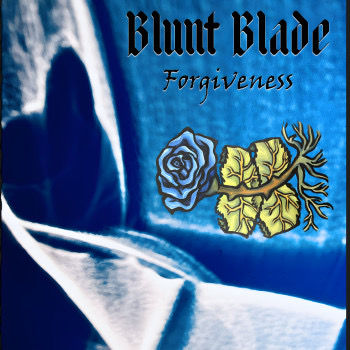“FORGIVENESS” by Blunt Blade
- Levi

- Aug 20
- 2 min read

With Forgiveness, Minnesota-based multi-instrumentalist Blunt Blade delivers a sweeping and ambitious sophomore album, one that embraces rock in its many incarnations while weaving in electronic textures and orchestral flourishes. Released on June 30, 2025, the seven-track record not only expands upon the foundations set by his 2022 self-titled debut but elevates his artistry into a more daring and cinematic realm. Mixed by Gordon Davidson and mastered by Alex Wharton at the legendary Abbey Road Studios in London, Forgiveness carries a sonic richness that mirrors its thematic weight. The album begins with “Sprawling”, the lead single unveiled before the record’s release. It sets the stage with a fusion of progressive structure and dramatic atmosphere, immediately introducing listeners to the record’s darkly melodic palette. From there, the album journeys through songs of tragedy—some imbued with moral undertones, others left deliberately ambiguous.
Each piece stands as its own vignette, yet together they form a cohesive narrative arc that builds toward the monumental closing title track. The final and titular song, “Forgiveness”, stretches across ten and a half minutes, embodying the expansive ambition at the heart of the album. Its layered progression gradually swells into an epic journey for the senses, balancing moments of intensity with passages of restraint. The track resolves in a dark coda, but within that shadow emerges a faint glimmer of hope—an ending that encapsulates the tension between despair and transcendence threaded throughout the record. Blunt Blade’s eclectic influences are evident across the album, drawing inspiration from an impressive spectrum of artists: the experimental daring of Frank Zappa, the atmospheric depth of Radiohead, the improvisational freedom of Miles Davis, the psychedelic edge of Tame Impala, the angular grooves of Talking Heads, and the heavy dynamism of bands like Iron Maiden, Tool, and Soundgarden.
At the same time, the presence of more modern alternative figures such as Metric and the progressive theatrics of Dream Theater and Phish further shape the album’s hybrid identity. Yet, while traces of these influences surface, Blunt Blade maintains a distinctly personal voice—anchored by his commanding baritone vocals and multi-instrumental versatility. As with his debut, Forgiveness was recorded in Winona, MN, and produced by Aaron Ruppert under Sharpening Stone Records, LLC. But where his first record leaned toward establishing his eclectic sound, this second effort refines it into something more purposeful and thematically unified. Moody, dark, and melodic, Forgiveness demonstrates Blunt Blade’s capacity to craft music that is at once deeply personal and broadly resonant. It is an album that does not shy away from tragedy, but instead transforms it into an artistic statement of depth, weight, and enduring resonance.











Comments